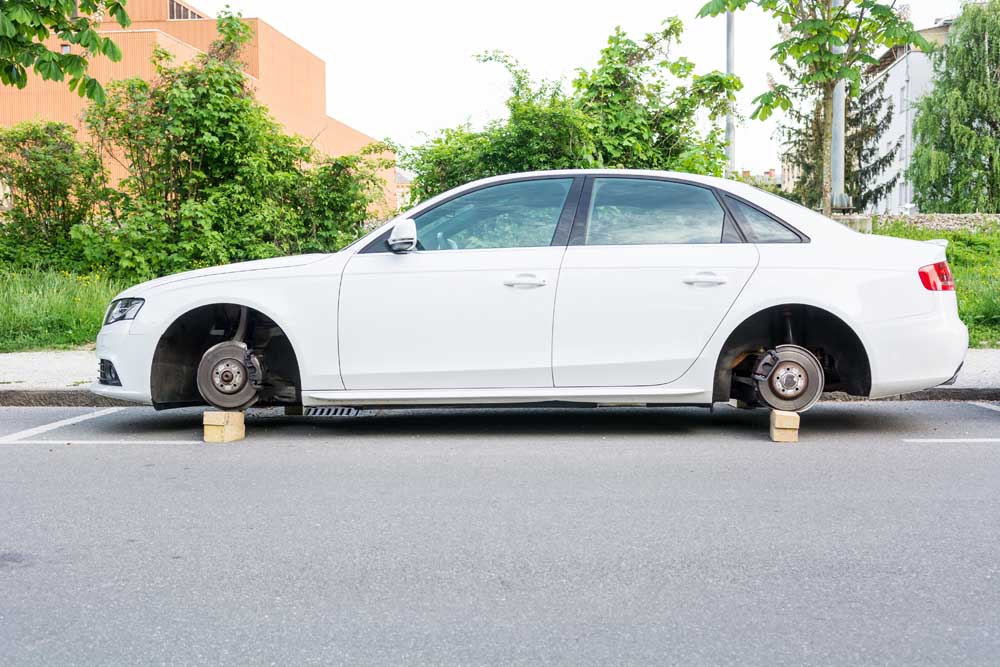Lukens column: Legislature poised to address Oregon’s car-theft crisis
Published 12:00 am Sunday, June 2, 2019

- 123RF
Only a car thief could hate House Bill 2328, which is progressing through the Legislature with minimal drama and a whopping 27 cosponsors. Fortunately, car thieves rarely hire lobbyists.
This bill is necessary because Oregon has become a car thief’s paradise.
Vehicle thefts in the state increased by 73% between 2012 and 2017 while those nationally increased by only 11%, according to numbers provided by the National Insurance Crime Bureau, a nonprofit that combats insurance fraud. The problem is particularly acute in the Portland area, where more than three quarters of Oregon’s car thefts occurred in 2017. But it also affects Central Oregon, where the Bend-Redmond area saw thefts increase at more than twice the national rate between 2012 and 2017.
Last July, Redmond City Council made changing the state’s car-theft law one of its top four priorities for the current legislative session. HB 2328, cosponsored by Rep. Jack Zika, R-Redmond, is the answer.
Behind the leap in car thefts is a pair of Oregon Court of Appeals decisions that coddle criminals to an almost comical degree.
In 2014, the Appeals Court overturned the car-theft conviction of a man who’d been caught behind the wheel of a stolen truck he claimed to have gotten from “a friend named Richey.” Complicating Jerrol Shipe’s claim of innocence were some of the things found in his possession and in the truck. They included bolt cutters and a locked case labeled “crime committing kit.”
Still, all of this wasn’t enough to justify his conviction for unauthorized use of a vehicle, the court concluded, as it did not “support a determination that defendant actually knew that the truck he was using was stolen.”
As you might imagine, proving that someone knew a vehicle was stolen when he hopped behind the wheel is a difficult thing to do.
How difficult? Ask the cops who arrested a guy named Randy Korth in 2012. Korth was stopped while driving a stolen truck he said he’d gotten “from a guy named Dave,” a transient he says he met just weeks before. In the bed of a truck were a couple of sets of “jiggle keys,” which are used to steal vehicles. Though Korth denied any knowledge of the keys, paperwork with his name on it was found in a bag behind them.
Korth was convicted of unauthorized use of a vehicle, but the Appeals Court in 2015 determined that prosecutors had not proven that he knew that the truck was stolen.
In the wake of these two court decisions, which ask prosecutors to do the nearly impossible, car thefts naturally spiked.
Fortunately, the adverse effects of these decisions are felt most deeply in the Portland area, which enjoys plenty of clout in the Legislature. The mayors of Portland and 24 nearby cities complained in a March 12 letter in support of HB 2328 that the Appeals Court’s notorious car-theft decisions “have all but crippled vehicle theft prosecutions in Oregon.”
Portland Mayor Ted Wheeler wrote separately to lament that he receives “calls and emails from community members who are immensely frustrated and concerned with car thefts” in the city. Moreover, wrote Wheeler, the stolen-car epidemic affects poor people disproportionately because thieves seem to prefer older car models.
HB 2328 would make life harder for the jiggle-key crowd by changing the mental state that must be demonstrated in order to secure a conviction for unauthorized use of a vehicle. Instead of having to prove that someone actually knew that a car was stolen, prosecutors would have to demonstrate that a defendant “is aware of and consciously disregards a substantial and unjustifiable risk” that a vehicle’s owner does not consent to its use.
What could possibly sidetrack this bill given the universal recognition of Oregon’s car-theft problem and the widespread demand for a reasonable solution? Very little, thankfully, though the potential cost of HB 2328 requires an obligatory trip to the Legislature’s budget-writing committee.
The Legislative Fiscal Office estimated that the bill would cost the state about $3.3 million during the 2019-21 biennium and about $9.4 million during the following biennium, with most of that money devoted to prisons and public defenders.
There is, of course, a “no duh” quality to this estimate. When prosecutors regain the ability to hold car thieves accountable — an ability they had until 2014 — the associated costs will necessarily mount. Public defenders and jail cells aren’t free.
Nonetheless, the bill’s chief sponsor, Rep. Laurie Monnes Anderson, D-Gresham, was nervous enough about the price tag to answer critics pre-emptively in testimony submitted in March. Rather than simply looking at a potential jump in incarceration costs, she argued, it would be more appropriate to compare incarceration costs to those before 2014, “when conviction rates tracked theft rates.”
Fortunately, the bill took an important step Thursday, moving from the Public Safety Subcommittee to the full Joint Committee on Ways and Means. Barring any surprises, the Legislature finally seems poised to correct the damage to public safety done by the state’s second highest court.
Until then, keep your car doors locked and your fingers crossed.
— Erik Lukens is editor of The Bulletin.






